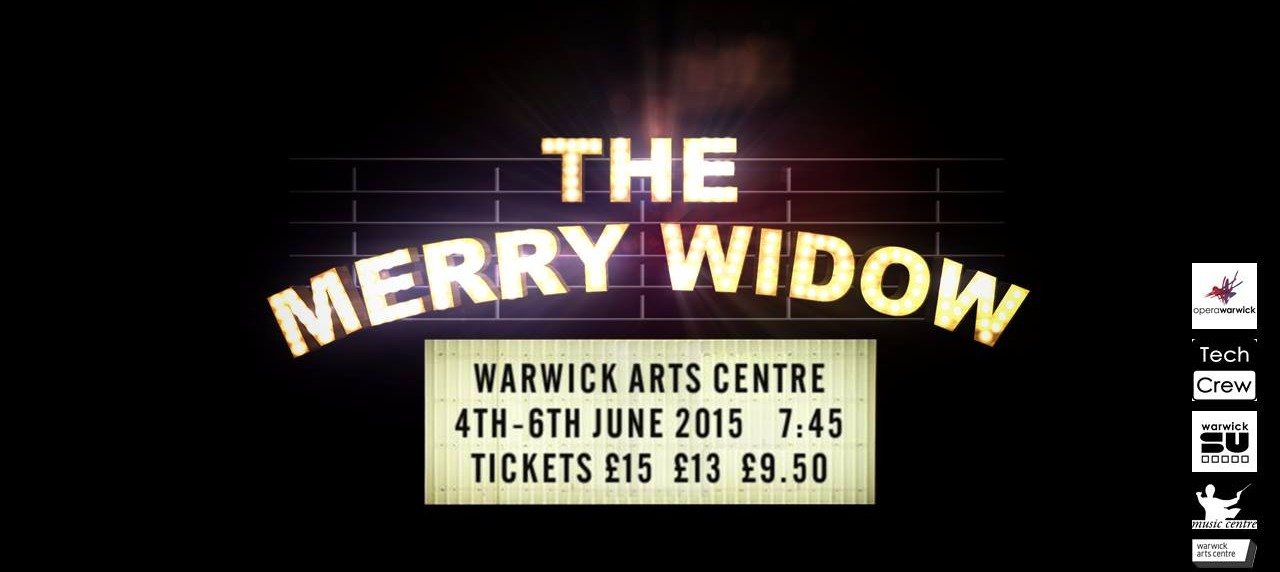Opera Warwick presents ‘The Merry Widow’
It certainly seems Opera can be branded as cool on the Warwick Drama scene as Opera Warwick brought us The Merry Widow last week. Whereas last year, opera wasn’t in the sightlines of most members of the Drama Collective, this year it’s almost become at the very forefront.
All I can say to that is bring it on. It’s great to see something different and opera has a completely different culture to other styles of theatre. There’s a dignity to it, respect and almost ritualistic elements as well as the self-awareness that always comes when music and theatre are combined.
The Merry Widow ticks all the boxes of your everyday, common or garden opera, but it also has some very odd qualities to it that I for one haven’t seen before. Its setting and dialogue come straight from 1950s America whilst the music remains classical. It combines something seen by most as remote and difficult to understand with a far more familiar troupe, that of the Hollywood Movie Studio, making what could feel distant into something recognisable and therefore easily enjoyable. This is an opera where you get Tiffany diamonds, snazzy blazers and souring vibratos. There’s the suggestion of sex, an obsession with a woman and a farcical scene that involves a trellis covered in flowers – what more could you want?
The show begins with a pre-set where runners and costume assistants flit about under dusky lighting as they prepare the way for the glitz and glamour of the movie stars and executives who then flood the stage. Toasts are made, providing vital exposition for the following action and the quiet of the beginning is severely disrupted when the wealthy widow arrives on stage. The beginning throws you straight into the action and although it lacks in pace a little, the actors are fully invested in creating this little nuanced world that their characters inhabit, which works as a charming introduction to the piece. Relationships begin to reveal themselves and we are given a peek into a place where everyone is after money and power, both of which no one seems to possess. No one, that is, apart from Madame Glawari, the wealthy widow and everyone wants a piece.
This is the main arc of the opera bringing the question of who the girl will marry. Although unlike many other shows of that genre, at least Glawari, played by Natasha Agerwal, gets to exercise her ability to choose her man. It’s not the most original plot in the world, but that’s not really the point. If anything, the directors Danielle Sharp and Oscar Street seem to have relished in the predictability of the hiding scenes, the Benedict/Beatrice style relationship at the centre of the show, and the ridiculous way in which the men all fawn over the widow.
Silliness is the key and this silliness is really why you should see this show. There’s such enjoyment taken in the jokes from champagne spillages, cake nibbling and husband deceiving, to my personal favourite, the boob humour. There were a lot boob jokes. All of the physical comedy worked as little hidden touches that clearly had delighted the directors in rehearsals, evident from their cackles a few seats down from me. They fleshed out the world in a way which warmed everyone to the slightly misogynistic overtones of the script. I do wish more of the women were given a voice and even that the inevitable union at the end could have been twisted or undercut in some way, but you let these things go in the end. You’re so warmed to the characters that there’s little room to pick holes in the plot.
Of course one of the downsides of opera will always be that people are rarely incredibly good at acting and singing, but everyone in The Merry Widow was surprisingly consistent. The singing in particular remained at a high level throughout and though some performances were not as dynamic or interesting as others, the directors had managed this well and the effect was not one of mismatched talent, but rather of a confident and happy cast.
Some moments I want to note as being particularly enjoyable include one of the characters shouting emphatically at another “I invented Charlie Chaplin! I invented Charlie Chaplin!” which was obviously an invention as the Chaplin’s fame proceeded the premier of the opera, but none the less hilarious. Perhaps the most over the top character is Robin Kendall’s portrayal of Zeta and although he sometimes steals focus, the moments when he is mocked by other characters work really well. Some impressive backflips deserve recognition, perfectly timed waltzes and the way in which the balcony was used to expose the interior of a dressing room added detail and humour to the show. It must be pointed out, The Merry Widow has the sassiest ending, post curtain call, of any show I have seen at Warwick. As far as the music in the piece goes, Chris Blex conducting the orchestra almost became part of the action as he wildly gesticulated at the side of the stage with the song at the beginning of the second half being particularly beautiful. I’m not entirely sure what it was about it but it was sorrowful as the whole cast looked out to the audience, singing out under beautiful lighting.
The Merry Widow is not an opera to be taken seriously, but it is one that you should see. It’s engaging and funny and the cast, crew and orchestra have done a fantastic job with something that could have been clunky and overtly sexist. Instead, it’s a laugh and it’s one which commits to itself. Most of all, it means so much to all involved and that could be seen both in the directors’ tears during the interval and in the performances on stage.

Comments